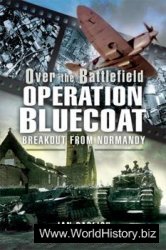JAMES G. HERSHBERG
In October 1962, the Cold War endured its most perilous passage - and humanity survived its closest brush with the ultimate man-made catastrophe: a thermonuclear war between the United States and Soviet Union that could have incinerated scores of cities and killed half a billion people, rendered much of the northern hemisphere uninhabitable, lacerated industrial civilization, and stamped a lethal exclamation point on a century already twice bloodied by outbursts of global carnage that would now pale in comparison.
On its surface, the Cuban missile crisis involved a single discrete set of circumstances: It stemmed from Soviet leader Nikita S. Khrushchev’s secret dispatch of nuclear missiles to Fidel Castro’s revolutionary Cuba and US president John F. Kennedy’s determination to reverse that deployment - and climaxed during the famous "13 Days" “eyebaU-to-eyeball” "on the brink" (the crisis birthed so many cliches that one can string them together to evoke it) extending from Washington’s detection of the missiles in mid-October to Khrushchev’s coerced consent to remove them on October 28.
Yet, any serious analysis requires assessing how multiple narratives converged to bring the Cold War to its tensest apex. Most broadly, the crisis starkly dramatized the chasm between ends and means that Hiroshima portended for international affairs. Cuba itself represented a vital interest for neither the United States nor the Soviet Union; both proclaimed their ideological contest should be decided through gradual historical processes, not war; and both Khrushchev and Kennedy sought their political goals short of a hazardous military collision.
Nevertheless, in the supercharged atmosphere of the missile crisis, with forces on high alert, any direct clash, whether intentional or accidental, was fraught with the danger of uncontrollable escalation. As Khrushchev wrote Kennedy, “if indeed war should break out, then it would not be in our power to stop it, for such is the logic of war. I have participated in two wars and know
That war ends when it has rolled through cities and villages, everywhere sowing death and destruction."56
Had full-scale war erupted, it would have dwarfed all others since humans bashed each other with stone clubs over raw meat and choice cave locations: though the nuclear balance overwhelmingly favored Washington - possessing, in 1962, about 27,300 nuclear warheads, including more than 7,000 strategic thermonuclear weapons, to Moscow’s roughly 3,300 nuclear warheads, about 500 of them strategic57 - the two countries had more than enough firepower to justify Kennedy’s acknowledgment that "even the fruits of victory would be ashes in our mouth" and Khrushchev’s warning that a lack of wisdom could lead to "a clash, like blind moles, and then reciprocal extermination will begin. "58
Kennedy and Khrushchev managed to avoid yanking their fellow lemmings over the precipice - though how close they came remains disputed - and as the fear and patriotic fervor faded, the ludicrous dissonance between the crisis’s nearly apocalyptic outcome and ephemeral causes began to inspire ridicule, symptomatic of a slackening of reverence for Cold War orthodoxies. Stanley Kubrick’s Dr. Strangelove or: How I Learned to Stop Worrying and Love the Bomb (1964) fused subversive humor and technical verisimilitude to depict accidental nuclear war and hilariously mock Cold War paranoia. "So long, Mom, I’m off to drop the bomb," sang Tom Lehrer a year later in a bit of "prenostalgia" (since ditties commemorating World War III had to be composed beforehand). Promising mom he’d "look for her when the war is over - an hour and a half from now," the soldier marching off to Armageddon jauntily juxtaposes the impending conflict’s devastation and gripping entertainment value:
While we’re attacking frontally Watch Brinkally and Huntally59 Describing contrapuntally The cities we have lost.
No need for you to miss a minute Of the agonizing holocaust
In Cold War history, the crisis culminated a decade-and-a-half of superpower jousting and groping toward tacit "rules of the game." To block Communist expansion, John Foster Dulles had espoused “brinkmanship" - the doctrine to display unflinchingly, when challenged, the nerve to risk nuclear war - and Khrushchev embraced this recipe for his own ratcheting up of tensions to discover whether the West would cave. In no place was his strategy more apparent than Berlin, where, in late 1958, he launched a drive to expel US and allied military forces from the western sector of the divided capital and, eventually, ease its absorption into East Germany. Though Dwight D. Eisenhower and Kennedy (JFK) vowed they would stay put, Khrushchev repeatedly turned up the heat. At a June 1961 summit in Vienna, he brusquely told JFK that he had until the end of the year to relent or else Moscow would sever West Berlin’s access routes to West Germany, and rebuffed his cautions against “miscalculation" (yet he would let the ultimatum lapse). Khrushchev once likened the isolated city to the “testicles of the West" - it hollered whenever he squeezed - but to colleagues inJanuary 1962, he used a more genteel metaphor to describe his tactic of keeping East-West relations on a knife-edge to extract maximum concessions: filling a wineglass just past the brim, so the liquid formed a “meniscus" yet never quite overflowed.60
So harrowing were the years leading up to the Cuban crisis that they were compared to the atmosphere pervading J. R. R. Tolkien’s Lord of the Rings, laden with evil and imminent doom.61 Sooner or later, the superpowers would have to break their habit of meeting at the brink - because a crisis exploded into all-out war, or grew so terrifying as to sober them up.




 World History
World History









